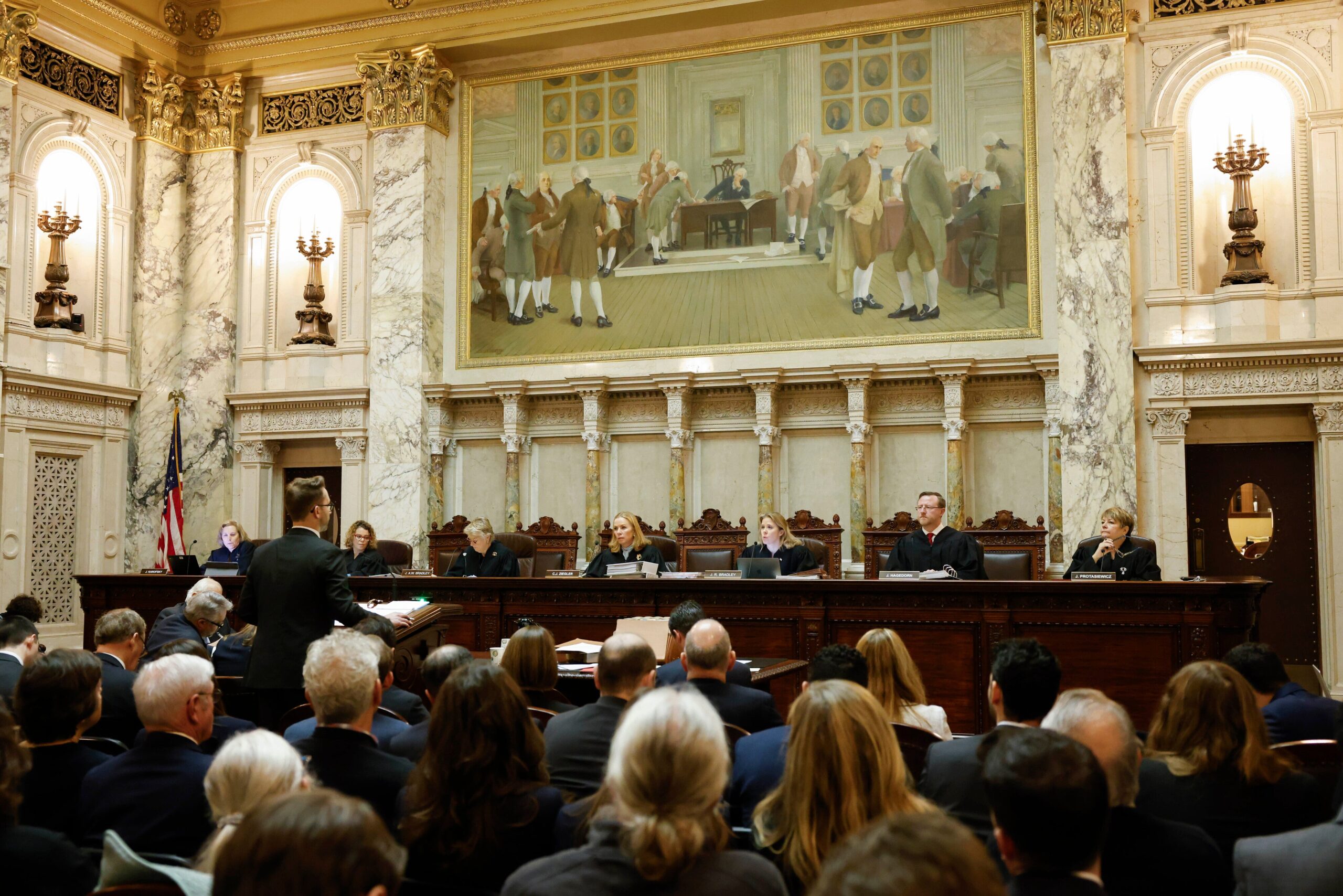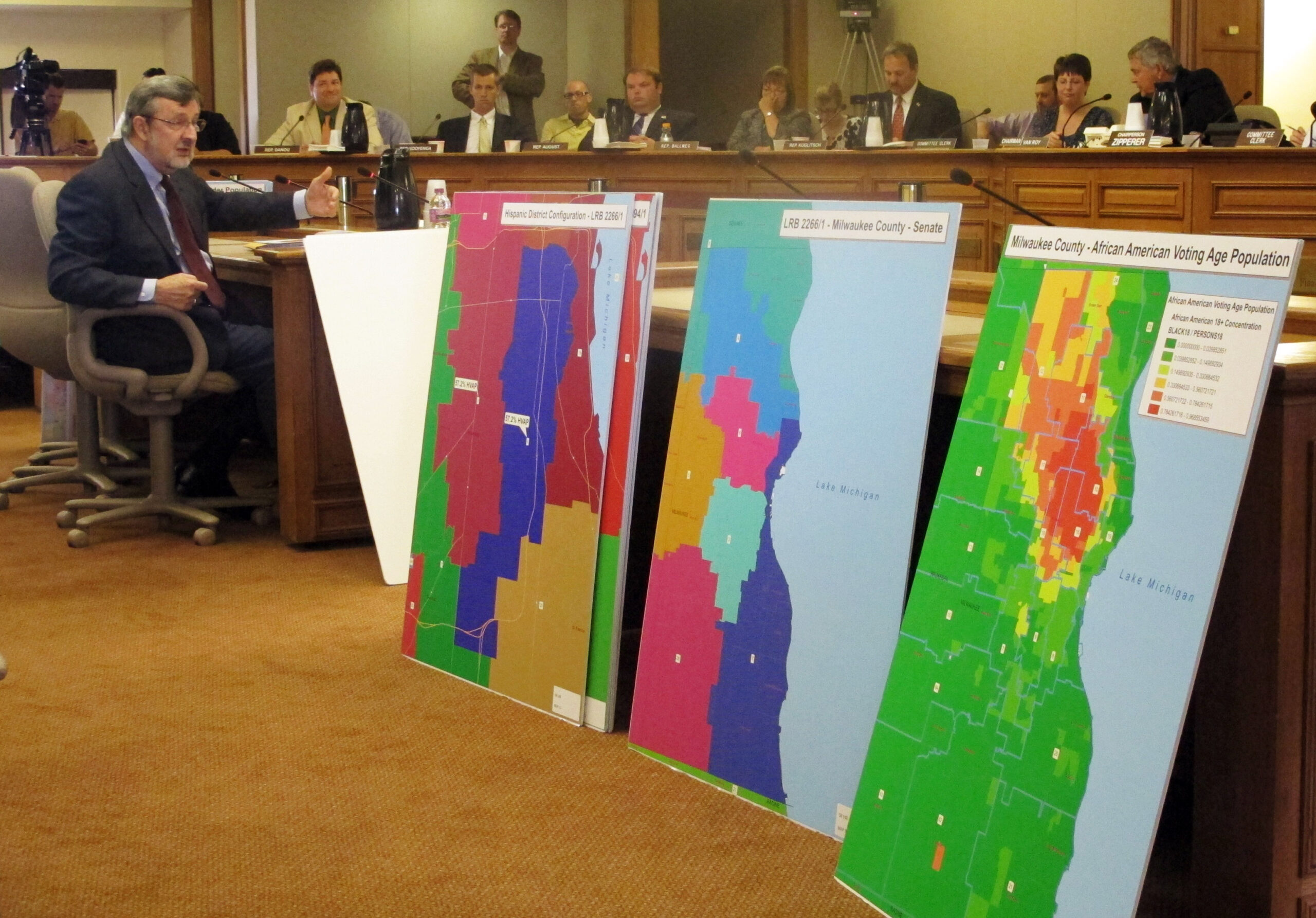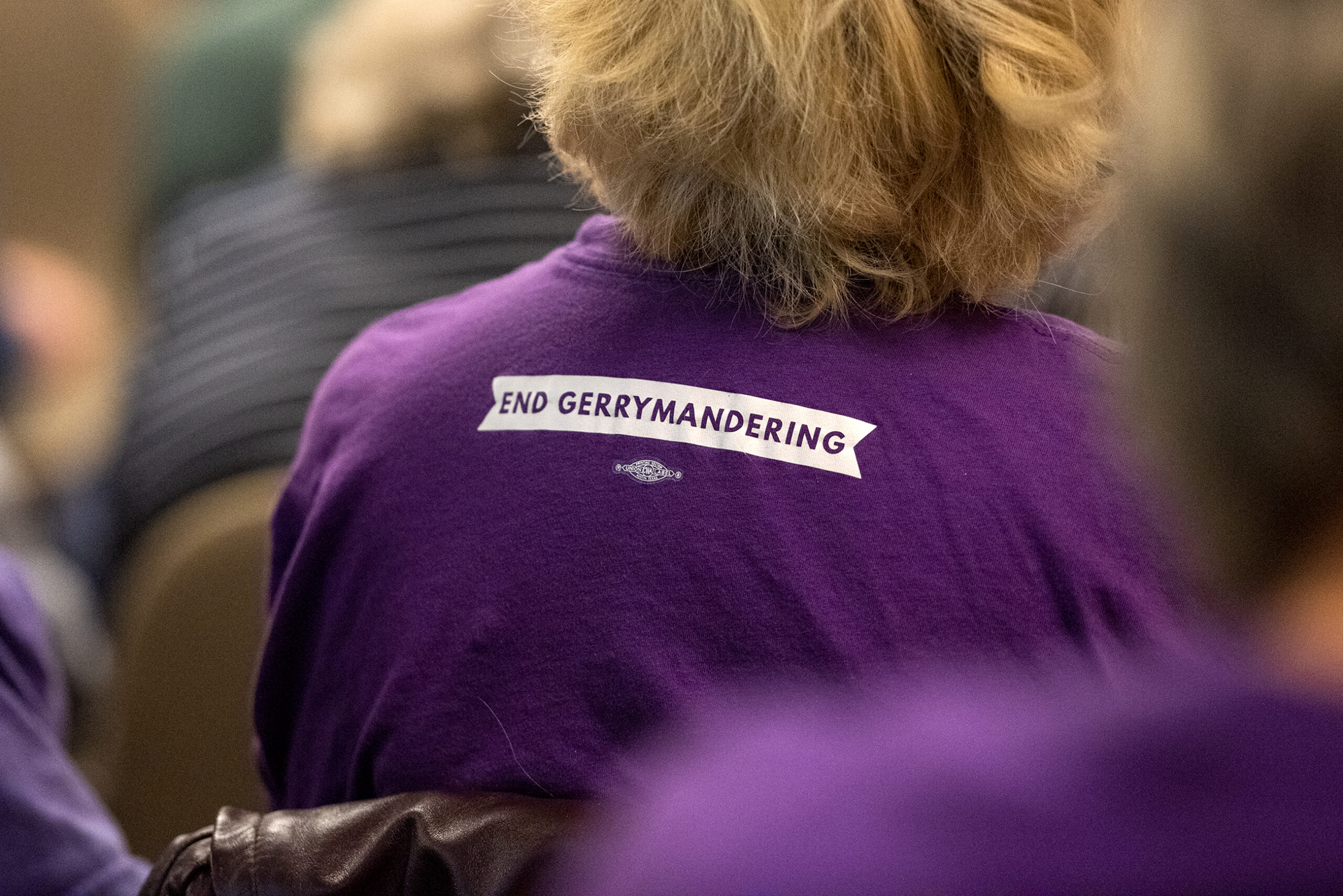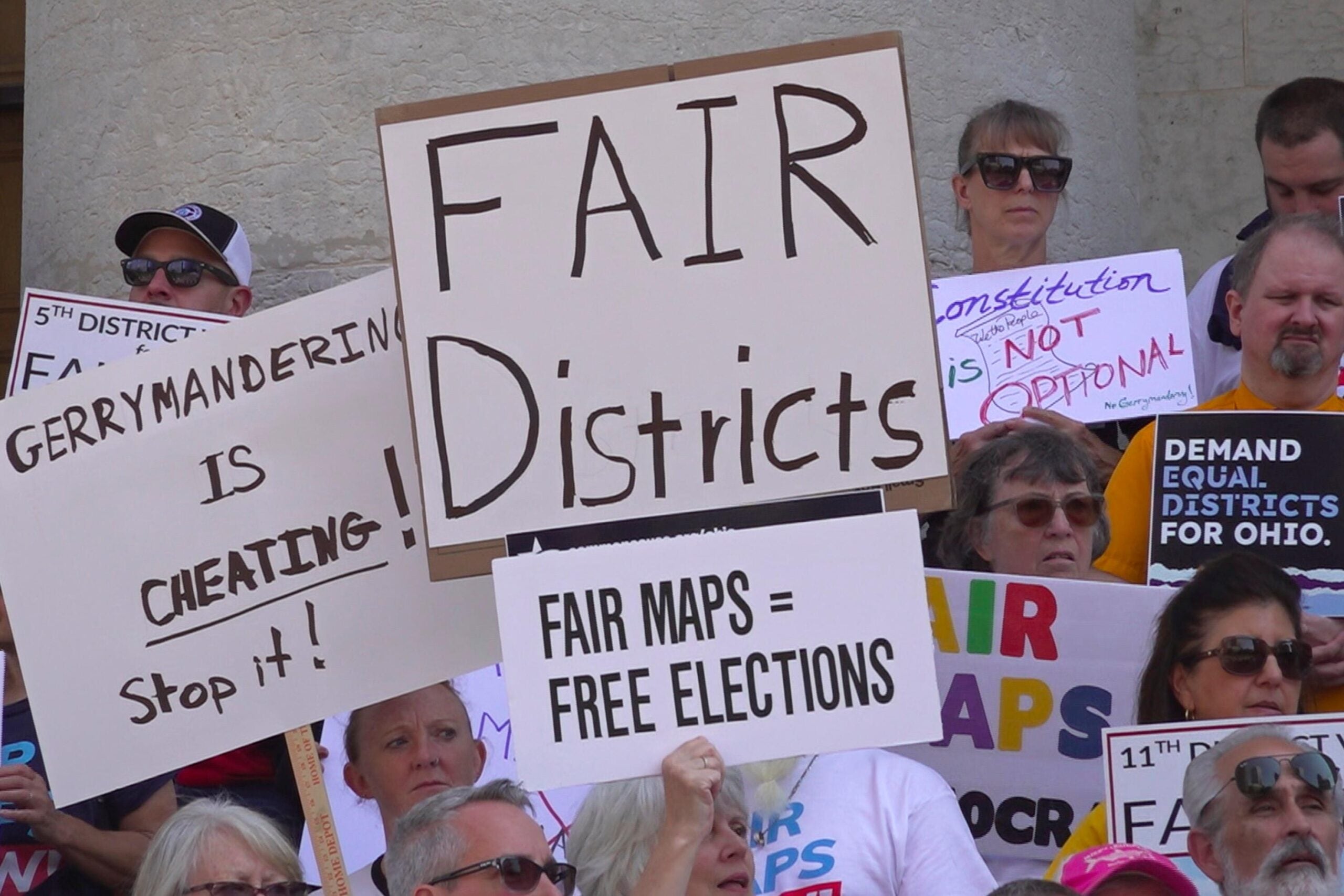With the stroke of a pen, more than a decade of legal battles over Wisconsin’s Republican-drawn legislative maps could be over. Or the maps saga could be headed back to court.
The decision over what Wisconsin’s political maps will look like for the remainder of this decade now rests firmly in the hands of Democratic Gov. Tony Evers, after a Legislature led by Republicans passed a set of maps the governor’s office drew.
It has Evers’ allies offering competing advice, with Democratic lawmakers urging the governor to hold out for better and groups that have long pushed for “fair maps” celebrating what they say should be a monumental deal.
News with a little more humanity
WPR’s “Wisconsin Today” newsletter keeps you connected to the state you love without feeling overwhelmed. No paywall. No agenda. No corporate filter.
The change in Wisconsin’s political landscape has been in the works since last year, when liberals captured a majority on the Wisconsin Supreme Court and ruled the current GOP maps are unconstitutional.
The court ordered parties to the case to draw replacement maps, but Republicans in the state Legislature flipped the script Tuesday, when they quickly introduced and passed voting maps that were identical to the ones submitted to the court by Evers.

Redistricting experts hired by the court say Evers’ maps are “tilted toward Republicans” but are competitive enough that “the party that wins the most votes will win the most seats.”
Republican lawmakers, like Assembly Speaker Robin Vos, R-Rochester, and Senate Majority Leader Devin LeMahieu, R-Oostburg, described the governor’s maps as the best option among the proposals being considered by the Supreme Court, some of which are slightly more favorable to Democrats. Vos said he’s confident Republicans can be competitive under the maps, but conceded Tuesday “the Legislature will be up for grabs.”
Evers had previously said that if the Legislature passes his maps without changes, he would sign them, but as of Wednesday afternoon he hadn’t taken action.
Hours after the maps passed the Legislature, a coalition of groups that includes the League of Women Voters of Wisconsin and the Wisconsin Democracy Campaign came out in support of the maps, as did Common Cause in Wisconsin.
But this map is something that is going to restore balance to Wisconsin.
Nick Ramos
League of Women Voters Executive Director Debra Cronmiller told WPR Wisconsin is “right on the cusp of getting rid of the gerrymandered maps” and hopes Evers gives final approval.
“If enacted, we move out of what is a gerrymandered Wisconsin state Legislature to something that in November, we’ll have an opportunity to become a Legislature more reflective of the views and opinions and values of the state of Wisconsin,” Cronmiller said.
Wisconsin Democracy Campaign Executive Director Nick Ramos called the process used by Republicans to introduce and pass Evers’ maps without a public hearing “extremely flawed.” Still, he said it was an “historic moment” for Wisconsin even if GOP lawmakers did so “with their backs against the wall.”
“I mean, honestly, it looks like they’re afraid that the Supreme Court is about to make things really awful for them, and they’re over here choosing what they believe is going to be the least worst option for them,” Ramos said. “But this map is something that is going to restore balance to Wisconsin. And that’s why I woke up today, feeling energized, and I’m excited to see what the future holds for Wisconsin.”
At the same time, Democratic state lawmakers have sounded the alarm. All but two Democrats voted against the maps in the Legislature, and some have expressed concern that the plans could amount to a “trojan horse.”
A social media post following the map bill’s passage from Assembly Minority Leader Greta Neubauer, D-Racine, said her fellow Democrats “fear that Republicans are again up to their usual tricks.”
“Throughout this session, and for the last decade, one thing has been clear: Legislative Republicans will do whatever it takes to keep their power,” Neubauer said.
A theory has been circulating among some liberals, including U.S. Rep. Mark Pocan, D-Town of Vermont, that Republicans only supported Evers’ maps because it opens a lane to a potential federal lawsuit before the 7th Circuit U.S. Court of Appeals.

Marc Elias, who heads Elias Law Group LLP, is asking the state Supreme Court to overturn Wisconsin’s Republican-drawn Congressional districts. In his own post, he agreed with Pocan and urged Democrats to look at examples in Alabama and Louisiana.
“Count me among the skeptical. The GOP never gives up power without a fight,” Elias said.
Yet other attorneys watching Wisconsin’s redistricting saga have rejected that theory.
A social media post from Milwaukee attorney Ann Jacobs, a Democrat who sits on the Wisconsin Elections Commission, called Pocan’s theory “nonsense.”
“This just isn’t a thing,” Jacobs said.
Other lawyers connected to the redistricting lawsuit offered similar takes earlier this week. Mark Gaber, who represented Democratic voters who brought Wisconsin’s redistricting lawsuit, called the idea “literal gibberish.” Doug Poland, who has represented Democrats in several redistricting lawsuits going back to 2012, wondered why it was even being discussed.
Ramos said he understands why people looking at the debate from the outside would be leery of what’s happening.
“I think the skepticism from a lot of people is real,” Ramos said. “But at this point, we are in a real position to see real change in Wisconsin.”
GOP leaders presented Evers with the maps on Tuesday. Under state law, that means he has until next Tuesday to decide whether to veto them.
For more on the history of redistricting in Wisconsin and how it impacts political power in the state, check out WPR’s investigative podcast series, “Mapped Out.”
Wisconsin Public Radio, © Copyright 2025, Board of Regents of the University of Wisconsin System and Wisconsin Educational Communications Board.





